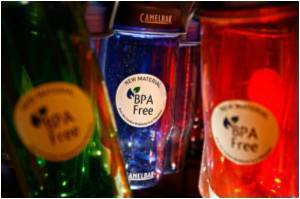Early exposure to BPA (bisphenol A) causes an increased prostate cancer risk, states study.

Previous studies by Prins and colleagues using rats showed that exposure to elevated estrogen or BPA during embryonic development increased the rate of prostate cancer later in life. To determine if there was a link in humans, Prins developed a new animal model using human prostate stem cells implanted into mouse hosts. "Prins took human prostate stem cells from deceased young adult male organ donors and implanted the cells into mice, where they formed human prostate tissue. To mimic exposure to BPA during early prostate development, Prins fed the mice BPA for the first two weeks after the transplant, at doses in line with those seen in pregnant American women.
The tissue was then allowed to mature for a month into a human prostate-like tissue. Next, Prins exposed the mice to elevated estrogen levels for two to four months, to mimic the normal rise in estrogen seen in aging men. Signs of cancer developed in the human prostate tissue in a third of the mice fed BPA, as compared to only 12 percent in mice that had not been fed BPA. If the stem cells were exposed to BPA before implantation and again during development, 45 percent showed signs of cancer. "We believe that BPA actually reprograms the stem cells to be more sensitive to estrogen throughout life, leading to a life-long increased susceptibility for diseases including cancer," Prins says.
Source-Eurekalert

![Prostate Specific Antigen [PSA] & Prostate Cancer Diagnosis Prostate Specific Antigen [PSA] & Prostate Cancer Diagnosis](https://images.medindia.net/patientinfo/120_100/prostate-specific-antigen.jpg)











